Tales of the Film Stills
Chapter One: Vestiges of Lost Glories
Hong Kong cinema emerged in the early 20th century and experienced rapid growth, from silent films to talkies, from simple to quality productions. The many films produced from the time were testaments to that extraordinary development. Many of these works were now sadly lost to us, due to the uncertainty and chaos brought by the two world wars. The film stills that remain to this day are vestiges of these lost glories. Combined with archival research, they let us retrace forgotten stories, and glimpse into the heyday of Hong Kong cinema.
Here are the synopses of the mentioned films extracted from the Hong Kong Filmography Vol. 1 (Revision Edition), 2 and 4 published by the Hong Kong Film Archive.
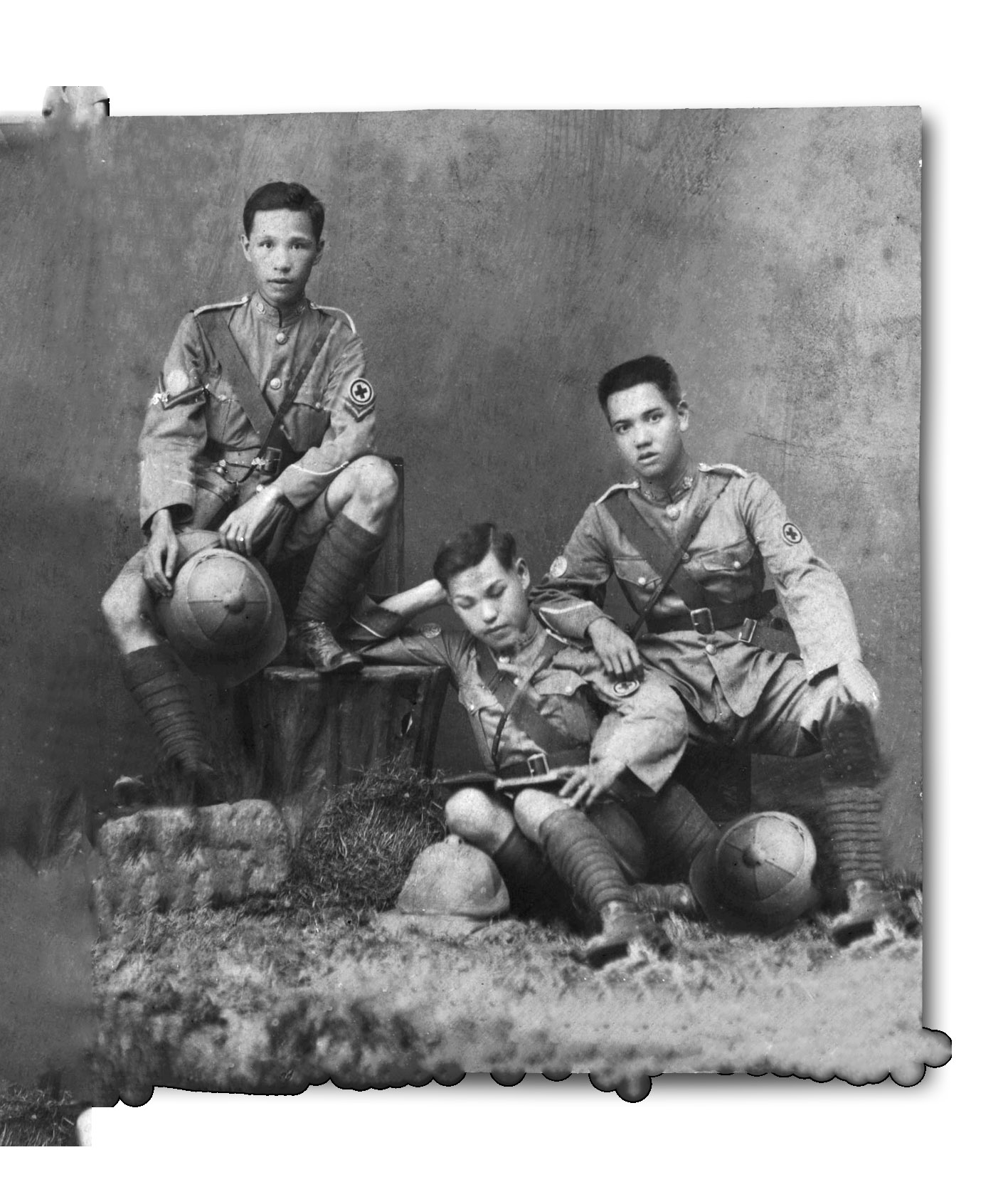
Join the Army and Live (1926)
Having ambition for authority, Cheung Man-kuen joins the army despite his lover Law Mo-lan's disagreements. After defeated at the battlefield, Cheung feels remorse and accidentally knocked down by a car while he gets drunk. When he wakes up, he finds Lan and his neighbour Luk Sau-yee waiting by his side. Accompanied by the two, he goes home and apologises to his mother. With the help of his maid, Lai Kuen, he is devoted to farming. Lan sends a letter to Cheung, telling him that she already married Luk when she thought Cheung was killed in the battle and persuades Cheung to accept Kuen's love, so Cheung proposes to Kuen. Soon after, Lan and Luk get divorced and she becomes a nun. On Cheung and Kuen's wedding day, Lan passes by Kuen's sedan chair.
Notes:
1. Guangya Film Company was founded by Chan Kwun-chiu and Lo Kok-fei et al.
2. It was filmed in today's Lee Gardens Hill. The film reel is more than 7000 feet long.
3. It was screened along A Thief Comes Unstuck.
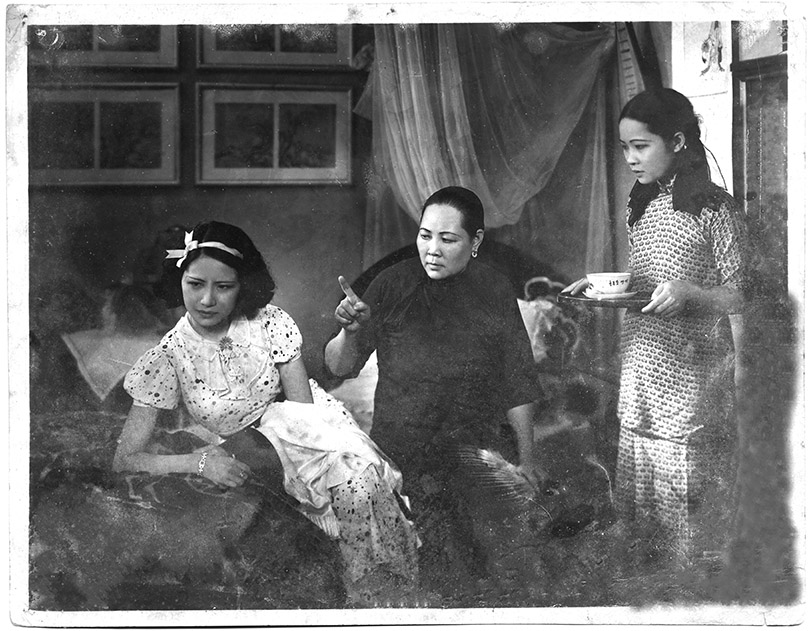
The Modern Bride, Part I (1935)
The dim-witted Yip Tai-siu is clueless about romance. Lee Lan-sze returns home from studying abroad. When her father, Sai-kei, learns of her engagement to classmate Mak Yin-leung, he confines her to the house and cuts off all correspondence between the lovers. Yip's mother longs for grandchildren and attempts to match her son up with Lee. She also hires the tutor Koo Hei-pak to teach Yip the ways of married life, but neither party is interested in the union. Lee's heart belongs to Mak, while Yip cannot forget his childhood sweetheart, the servant girl Lam Siu-kiu. Lee is ultimately forced to marry Yip by her parents. (Sequel to follow)
Notes:
Six renowned musicians, namely Lui Man-shing, Wan Chi-chung, Chin Tai-suk, Ho Tai-so, Lee Kai, and Wang To-nam play the cameo roles of the Erhu King, Violin King, Flute King, Guitar King, Saxophone King, and Harmonica King respectively.
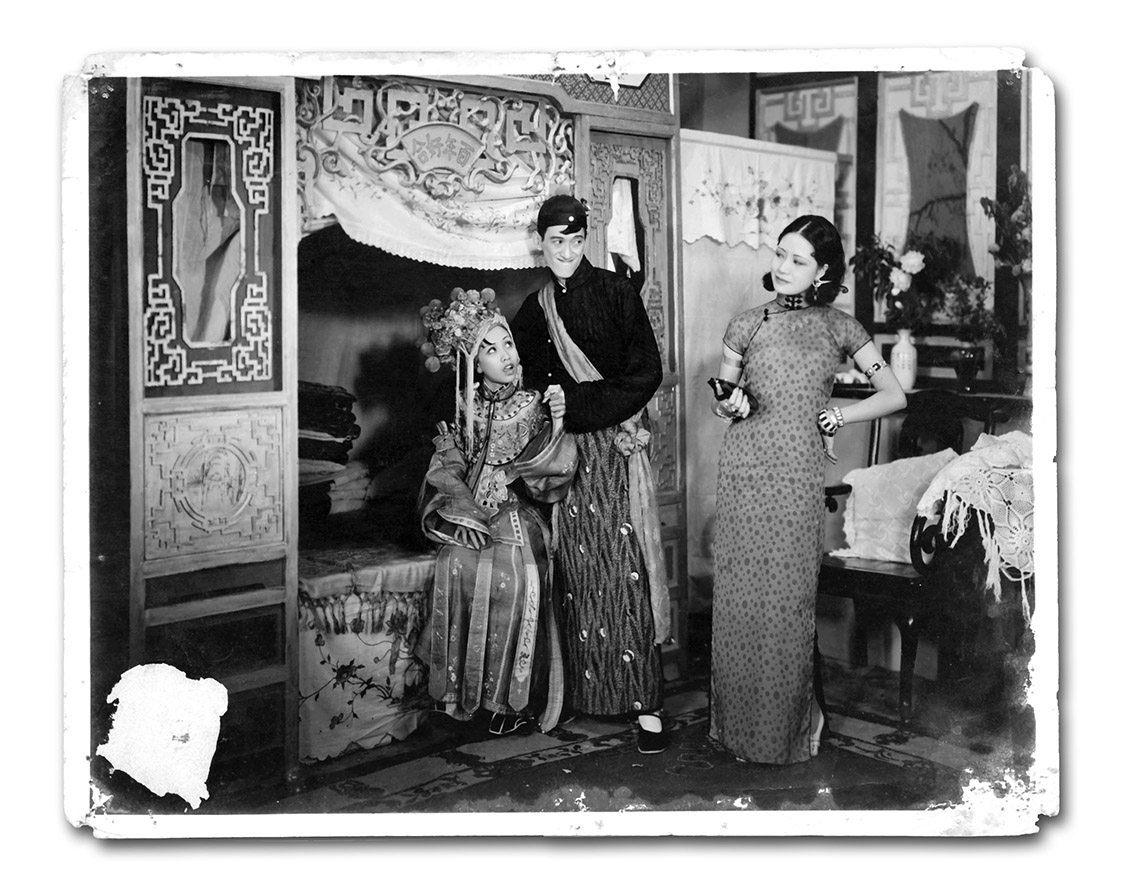
The Modern Bride, Part II
(Following on from Part I) On her wedding night, Lee Lan-sze discovers that Lam Siu-kiu is her husband Yip Tai-siu's true love. She persuades Lam to dress up as the bride and spend the night with Yip. Upon discovering that the bride is missing the following day, Yip's mother suspects that she has been swindled. She sues her in-laws, and it so happens that Mak Yin-leung is the judge. As Yip and Lam admit in court that they spent the night together, Lee suddenly appears. She criticises the conservativeness and pedantry of Chinese traditions and demands a divorce, which Mak grants. Lee's father finally betroths her to Mak. Meanwhile, Yip's mother finds out that the so-called ‘consummation' involved nothing more than childish games.
Notes:
1. There are two play-within-a-film scenes. The Dimwit Steals a Chicken is performed by Ho Tai-so and Wong Yi-wan, while Teasing the Maiden at the Teahouse is performed by Chin Tai-suk and Wong Yi-wan.
2. Five renowned musicians, namely Lui Man-shing, Wan Chi-chung, Chin Tai-suk, Ho Tai-so, and Lee Kai play cameo roles.
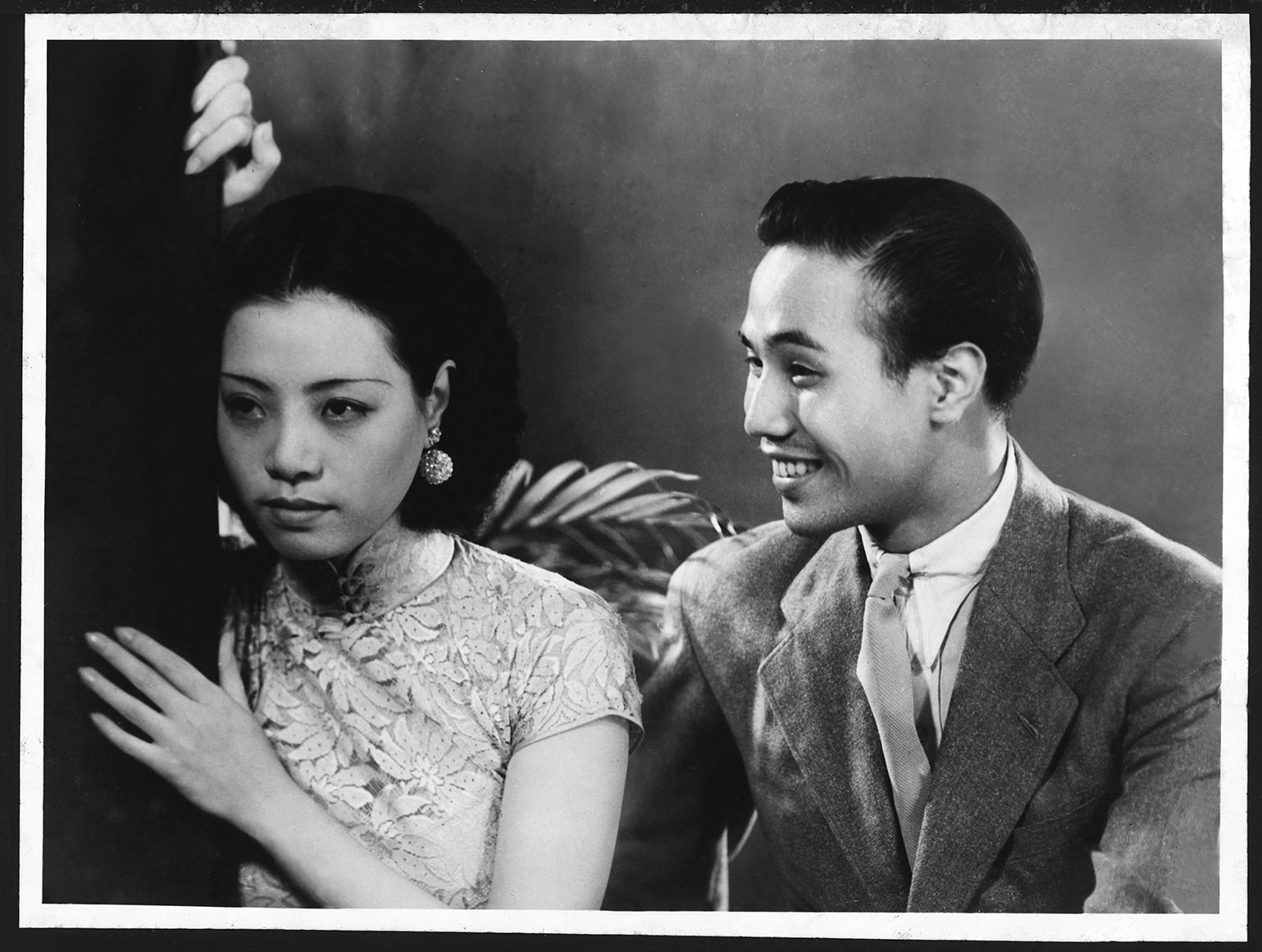
Half-Blossomed Rose aka A Blooming Rose (1935)
The script belonging to glamorous Cantonese opera actress Blooming Rose ends up in Shek Ching-sheung's luggage during her boat journey home. Shek returns the script and falls in love with her. The two move to Nanjing, with Rose retiring from acting to keep her better half company. The jealous Kong Bak-lin, who comes from a wealthy family, is filled with hatred and plots to hinder Shek's career. Furthermore, he tempts Rose to leave her lover by offering payment for her medical expenses when she suddenly falls ill. Shek's father disapproves of his son's relationship and coerces him into leaving Rose with the promise of paying for her treatment. Shek unwillingly obliges. Rose recovers from her illness, but once again falls prey to Kong's villainous scheming. Fortunately, Shek's father finally learns the truth and allows his son to reunite with Rose.
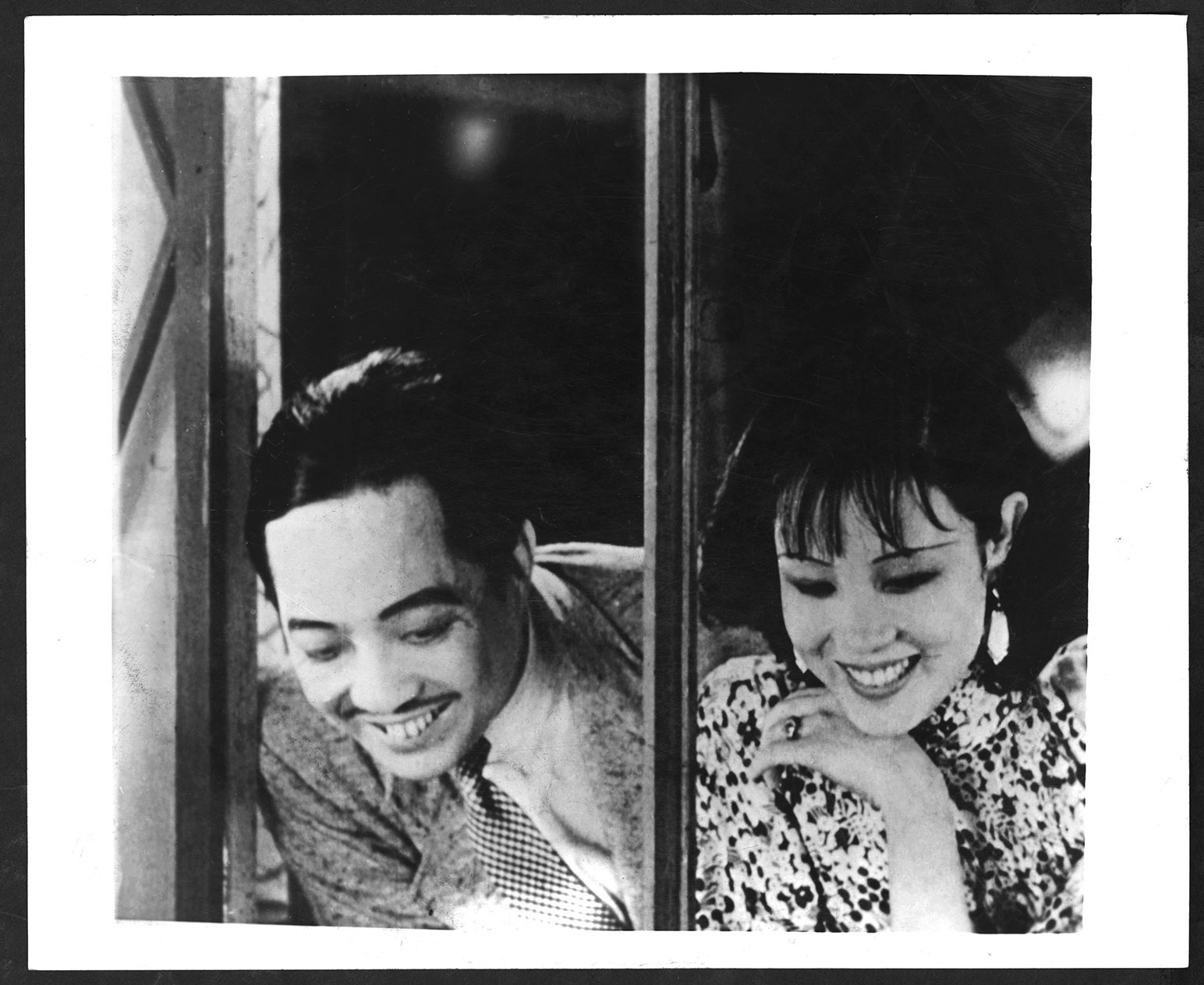
The Joyful Night aka A Night of Romance
The miserly Ah Luen is a heartless landlord. One day, he is tempted by a friend to attend a party at a hotel. He meets Ah Ying there, and the two have a one-night stand which results in Ah Luen contracting a venereal disease. Too embarrassed to go home, he writes a letter to his wife requesting a divorce before heading to the seaside to end his life. Along the way, he runs into a tenant whom he evicted begging for money. Ah Luen obliges and the tenant immediately looks for his landlord's wife to pay the rent. Ah Luen's wife asks for her husband's whereabouts and saves him in time. The sick Ah Luen regrets his irreversible mistake.
Notes:
The Athletics Meet: Day One to Day Seven was screened alongside the film.
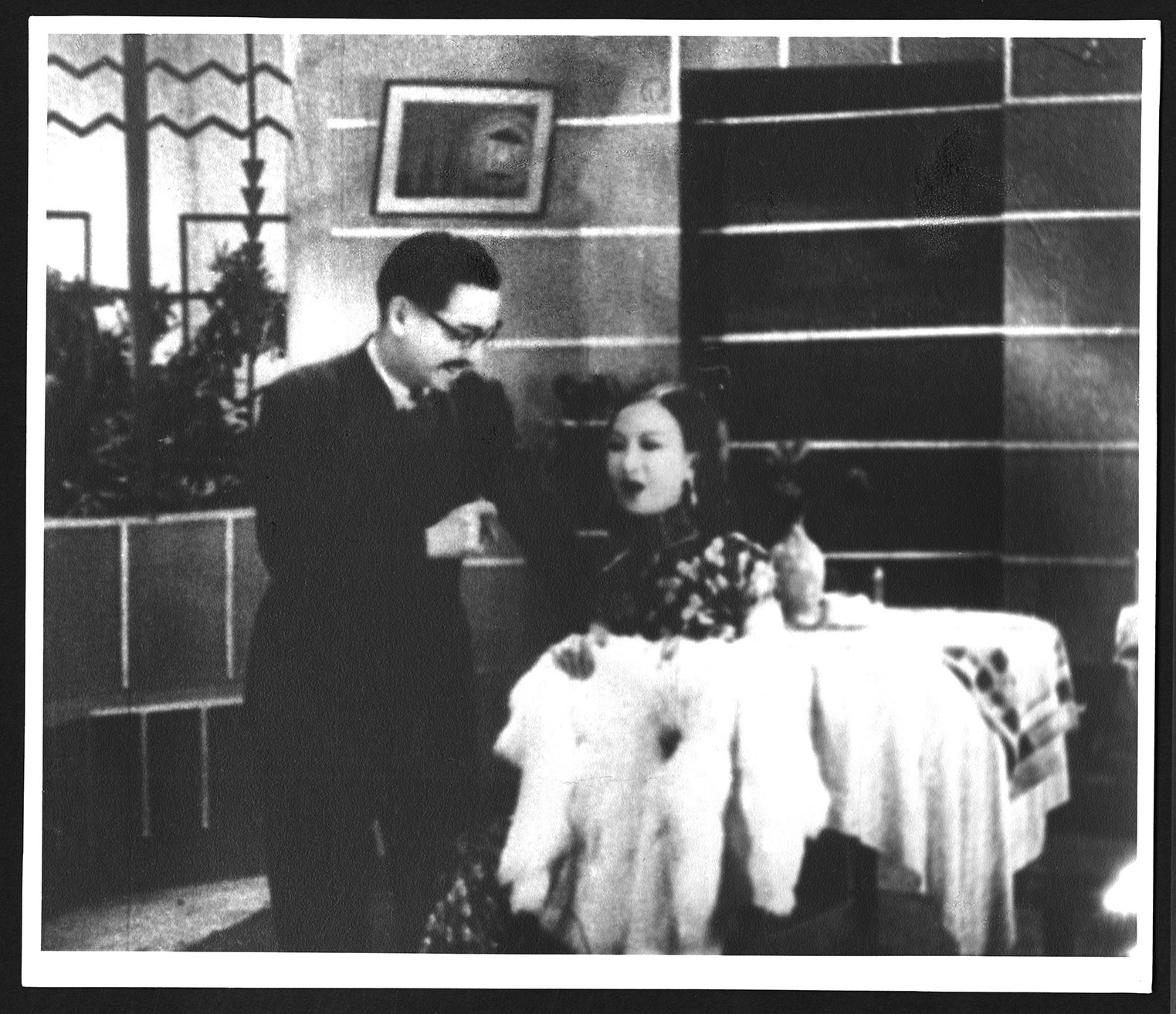
A Patriotic Woman (1936)
University student Chiu Siu-man comes from a poor family. His father Man-sing is seriously ill so he has to work as a rickshaw puller to earn the family expense. One day, when pulling his rickshaw on the road, Siu-man is hit by the car of unscrupulous businessman Ngai Kwan-fu. Siu-man is injured and is admitted to the hospital yet the villainous Ngai has no sympathy for him, not only blames him for the accident but also demands that Siu-man be arrested. Siu-man's father gets upset after learning the news and his conditions deteriorate. Siu-man's sister, Siu-lan, becomes a dance hall girl to help paying for her father's medical bills. Siu-lan meets Ngai in the dance hall and pleads him to have her brother released. Later, Siu-lan learns that Ngai smuggles platinum out of the country. She helps the police investigate and cajoles Ngai into a trip in Guangdong. With the help of his fellow students, Siu-man also joins the investigation. Finally, Ngai is brought to justice by the Chiu brother and sister.
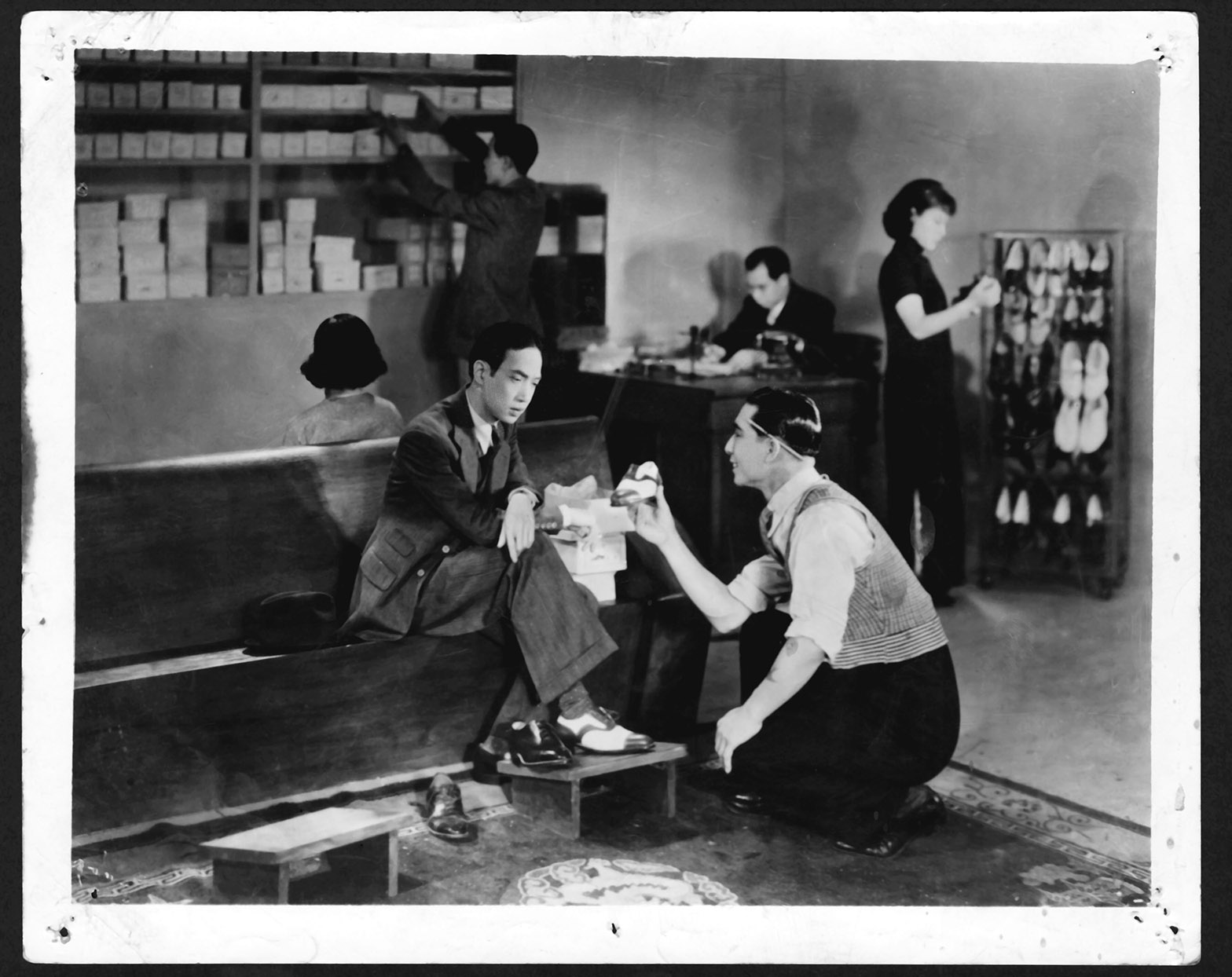
The Rose Girl aka Bitter Sweet
Having obtained his doctorate of commerce from Germany, Cheung Kam-lai runs away to escape an arranged marriage and changes his name. In order to take down an unscrupulous businessman Lo Sheung-man, Cheung is introduced by socialite To Mei to be Lo's secretary. Cheung and To Mei gradually develop feelings for one another that make Lo insanely jealous. Lo then fires Cheung, causing him to quarrel with To Mei. Cheung pulls himself together and wins the presidency for the Chamber of Commerce over Lo; Cheung also reunites with his father at the chamber. Meanwhile, Lo join forces with conservative factions to create a deficit of funds for Cheung to implement his platform at the chamber. Lim offers to help, if Cheung agrees to return home to be married. Forced to comply, Cheung is surprised to discover that his bride is actually To Mei.
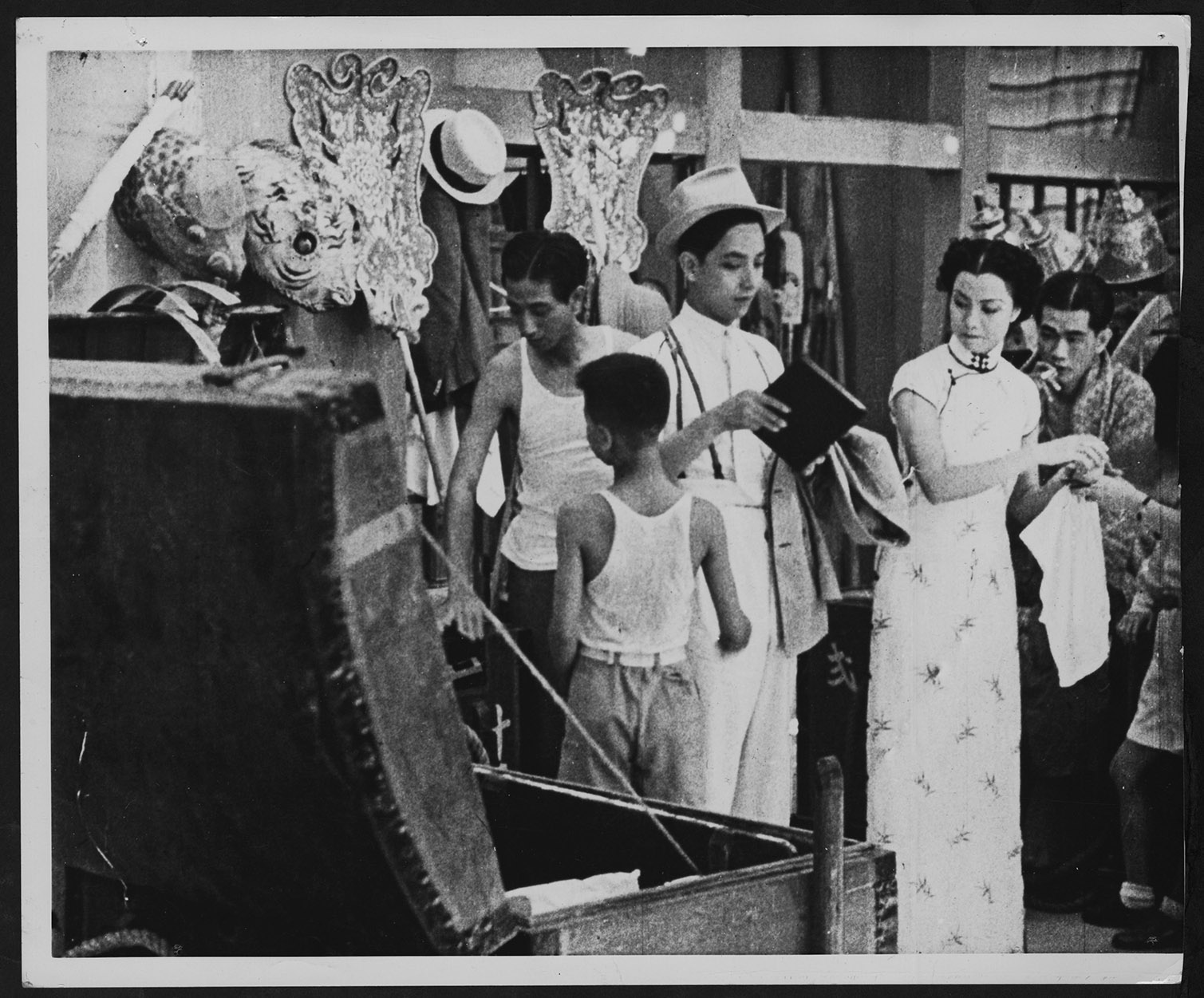
The Farmer's Son aka The Country Bumpkin Searches for His Son (1936)
Country bumpkin, Koo Kwan-shan, disapproves of his son San-siu's passion for acting, so he sends him and his wife Ah Mui to work in the city. Nonetheless, San-siu goes to Ho Tsz for coaching on his performance. When Ah Mui becomes the maid servant to a renowned opera star, San-siu finally gets his big break by joining the star's acting troupe. San-siu's popularity grows as time goes by, but when Ah Mui sees the two of them banter flirtatiously during rehearsals, she is enraged. Ah Mui goes home and returns to the city with Koo to interrogate Ho Tsz for answers, but they are expelled from the stage for causing a commotion. San-siu stars in a patriotic drama that incites discontent and is kidnapped. Koo disguises himself as an overwhelmed lady to infiltrate the kidnappers' lair with Ah Mui and rescue his son. When San-siu returns to the troupe, he and Ho Tsz persuade Ah Mui to let him perform a final performance of ‘Zhaojun's Departure for the Frontier' to proclaim his patriotic message.
Notes:
Two Cantonese operas are featured in the film: The Fall of the Nation and Destruction of Family, performed by Kwong Shan-siu (as the son) and Ho Tai-So (as the father) and ‘Ode to the Departed' from Before and After Zhaojun's Departure for the Frontier, scripted and scored by Wong Fa-chit, with Sin Ying-nung (as Zhaojun) and Kwong Shan-siu (as the Emperor).
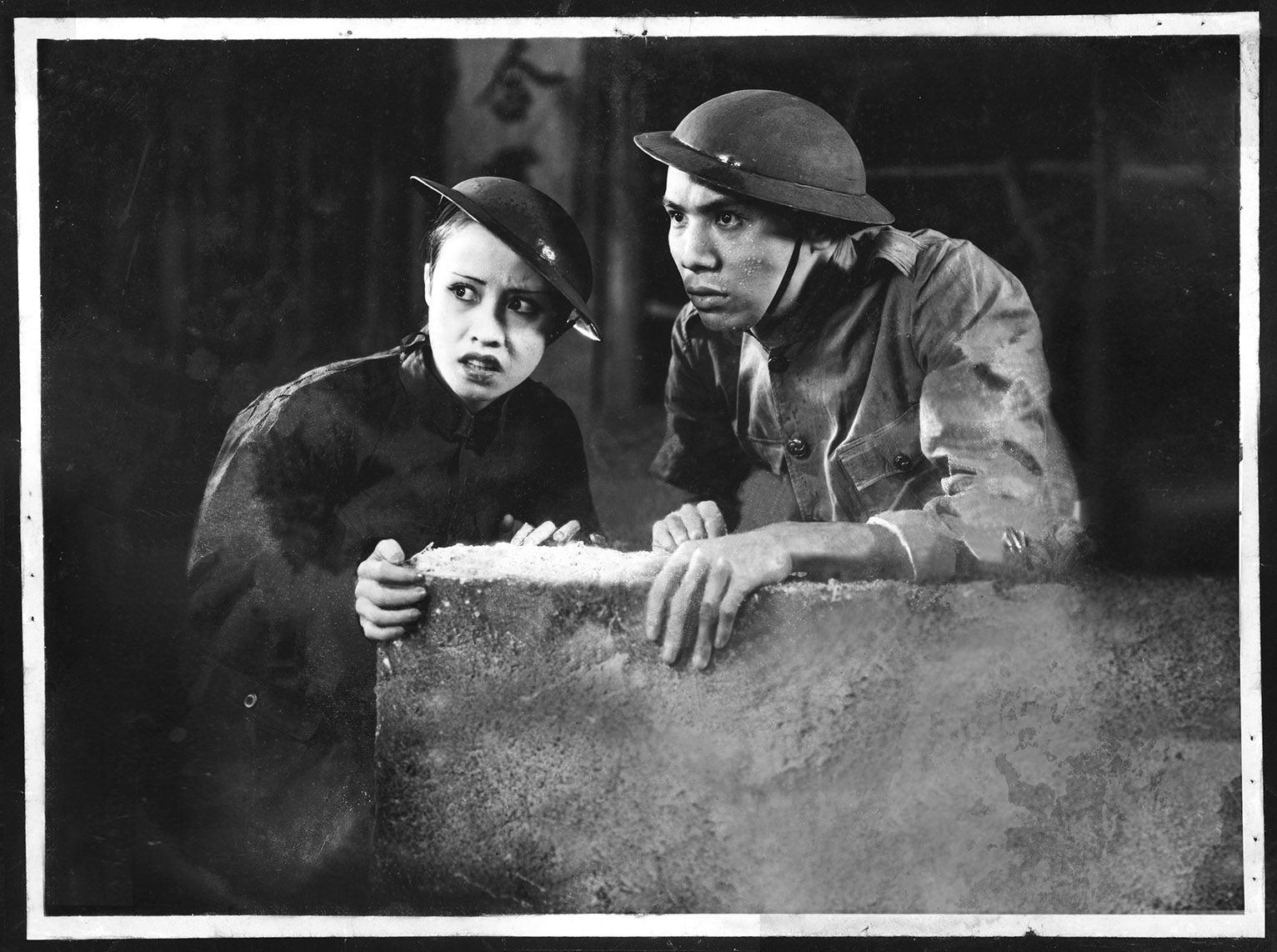
She Goes to War aka The Country Woman Joins the Army / The Heroine (1937)
Dedicated himself to inventing a missile launcher, patriotic young man Ng Kwok-chung joins the army after graduation and soon promoted to captain, but is captured by Lam Chung-tang, a collaborator sent by the enemy's commander-in-chief. Rumours of Ng's death circulate in the army. His mother Ho, along with his aunt, disguise themselves and change their names in order to join the army so they can avenge Ng's death undercover. Through sheer luck, they manage to capture the collaborator; in a similar haphazard fashion, they blow up the opposition's command headquarters during night-time patrol, causing mayhem among the enemy. Ho exploits the situation to forge forward, eventually winning the battle. She is reunited with her son and the two return home triumphant.
Notes:
Yee Chau-shui and Ho Tai-so perform a farce, singing call and response; Wong Sau-nin, Chu Ting-hok, Yeung Kwun-hap and Lau Kwai-hong play bumbling soldiers.
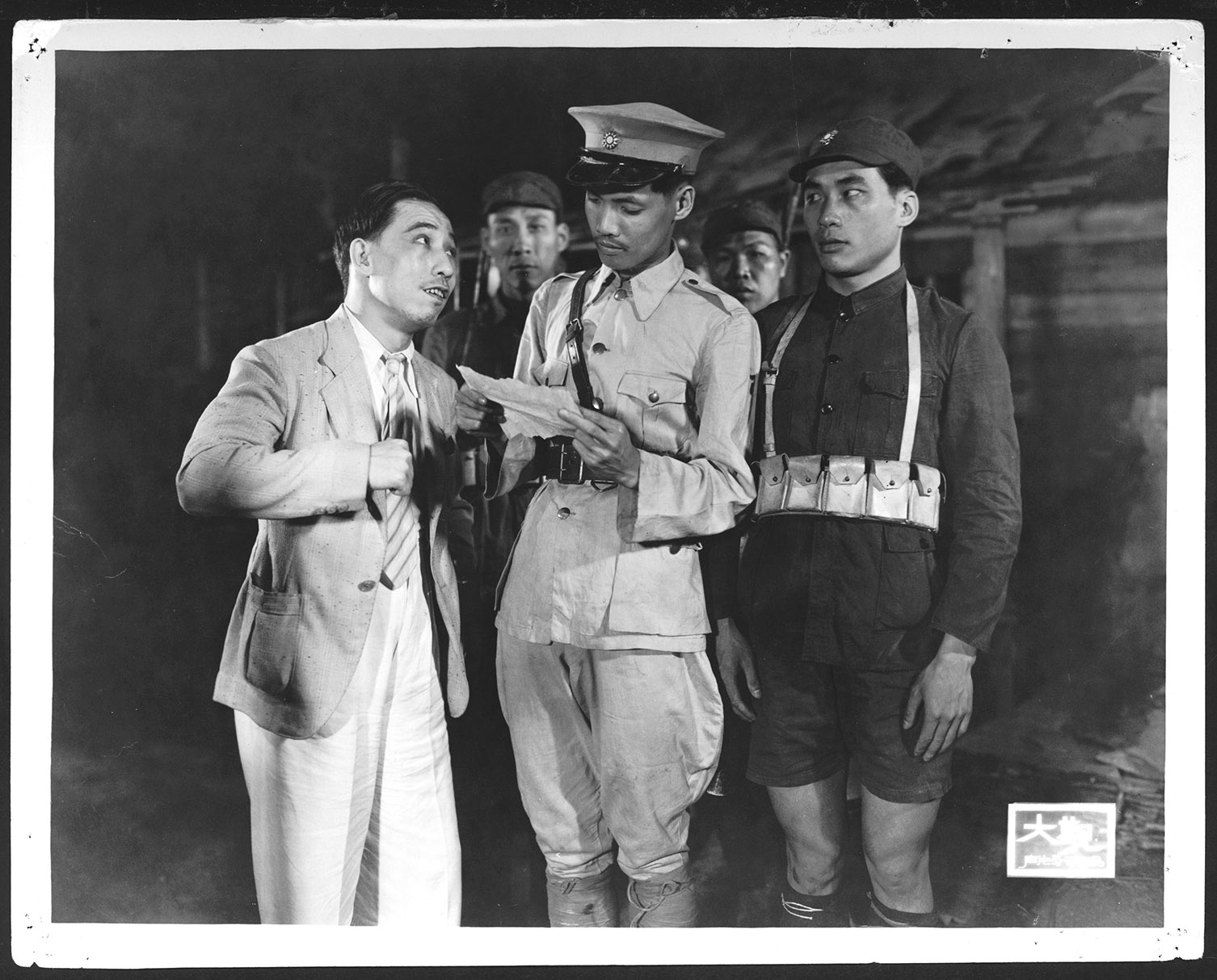
Four Brothers aka Four Boys Join The Army (1938)
Chan Sai-hung has four sons, Kwok-ming, Kwok-chung, Kwok-sing and Kwok-chiu. Kwong-chung is in love with neighbour Lee Siu-lan, but Siu-lan's father Ying-pang is against it. Kwong-chiu is spoilt rotten by his mother and even steals money from her to lend to an escort. Kwong-chung quietly returns the money for him. Siu-lan's elder brother Lap-shui becomes rich and invites the family to visit in Shanghai. Enemy planes bomb the village, killing Sai-hung. Kwok-ming, Kwok-chung and Kwok-sing all join the army, while Siu-lan and her brother go work for the military hospital, where she reunites with Kwok-ming, who is wounded in combat. Kwok-sing dies for his country and Kwok-chiu joins the army in anger. Ying-pang becomes a Chinese traitor and is killed by Kwok-chung. As the invasion spreads to other parts of the country, Kwok-chung is ordered to guard the Sihang, and Lap-shui and Kwok-chiu separately die for the country while transporting food.
Notes:
During a rerun on 3 September 1938, the documentaries Commemorating The Battle of Shanghai: Fundraising Campaign for Resistance Efforts and Sales of Government Bonds to Curb National Debt were also screened.
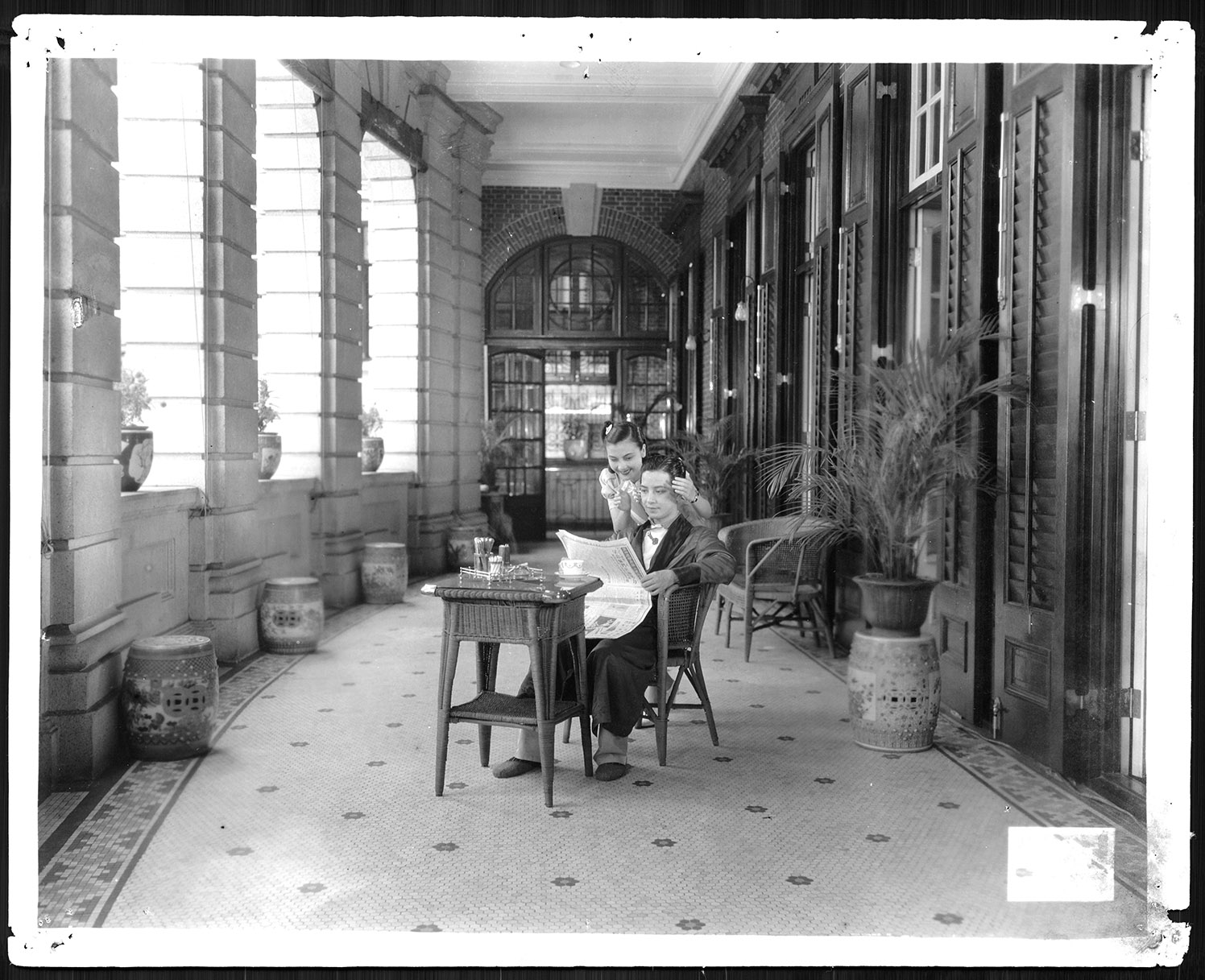
The Spendthrift aka The Rich Dandy (1938)
Playboy Chow King-ho comes from a wealthy family, he leads a dissolute life and lavishes all his time and money on women. Chow is in love with social butterfly Lam Mei-heung, but she has a secret lover Yee Yan, who is an artist. Singer Chan Siu-hing is Lam's flatmate, she has a liking for Chow but doesn't want to steal Lam's lover. Meanwhile, she has been pestering by another suitor, a rich man called Chiu Lo-ng, and doesn't have a chance to approach Chow. After Chow helps Chan to win the title of ‘dancing queen', they start falling in love with each other. Before long, the two decide to get married. When Chow gets the marriage approval from his mother, he goes to Chan's place to tell her the good news. However, Chow finds Chiu in the flat and the two have an altercation. On the other hand, Yee has followed Chow to the flat and is hiding away to watch the scene. Chow and Ng resort to violence and Ng is stabbed to death by a knife. Chow is arrested for the crime. Incidentally, Chan discovers some photos of Yee and Lam, and finds out that Yee is the culprit. Chow is proven innocent and he marries Chan at the end.
Notes:
Borrows the homes of several wealthy and notable figures such as Ho Kom-tong for the shoot.
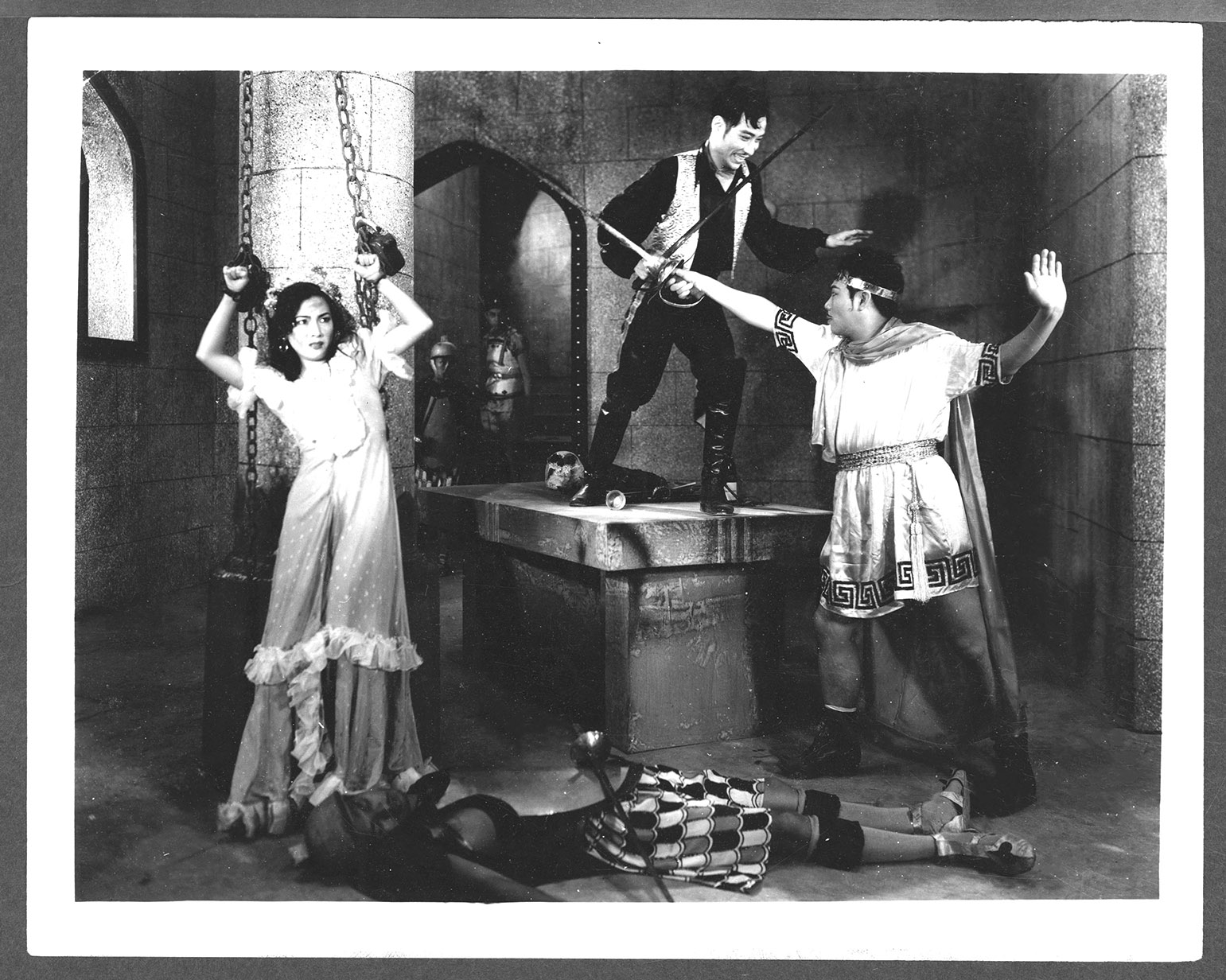
Vagabond Prince aka Thief of Bagdad / Chat Wong Chee (1939)
The king of the Moon Empire puts out an open invitation to seek a husband for his younger sister, Princess Coral. The prince of the Sun Empire is ambushed on his way there and is rescued by the bandit Hung Fong. The prince presents his letter of invitation to his rescuer before dying. Hung assumes the prince's identity and takes part in the selection, obliterating his competition. However, the prince of the Gold Empire blows his cover, resulting in his imprisonment. Hung crosses paths with Coral after escaping, and the two share their grievances. Hung makes haste in riding back to the Sun Empire to fetch a treasure. The prince of the Gold Empire talks the maidservant into poisoning Coral, so that he can then win her heart by saving her. After bringing the princess back to life with a magic apple, the prince takes king of the Moon Empire hostage to coerce Coral into marrying him. Fortunately, Hung comes to their timely rescue and, the king ultimately sanctions the marriage between him and Coral.
Notes:
Inspired by the Cantonese opera of the same name performed by Tai Law Tin Opera Troupe starring Ma Si-tsang, which was also included in the repertoire of Tai Ping Opera Troupe led by Ma.
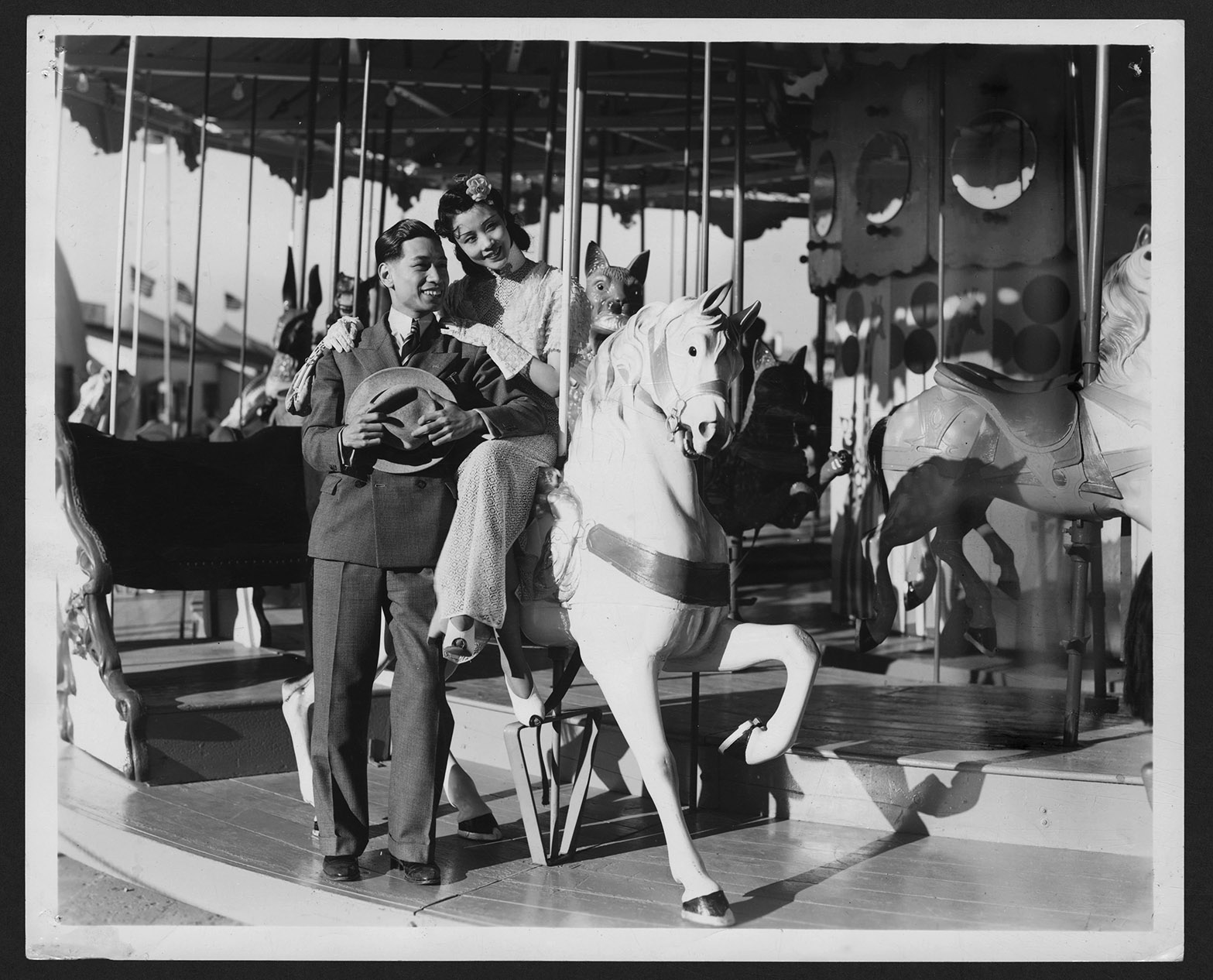
The Light of Overseas Chinese (1940)
The industrious Chiu Wai-man leaves China to find employment in San Francisco. Soon he is working under a good boss and dating salesman Fuk's daughter Mei-yuk. But one day, the boss's adopted son fires him for no reason. The elderly Fuk lets him live in his house. Chiu wants to run a laundromat but his savings are stolen. Fuk sponsors his shop, while Chiu and Mei-yuk work hard until the shop is burnt by a fire. Chiu then works at a mansion; the owner appreciates his dedication, who leaves Chiu all his assets when he dies. Chiu and Mei-yuk have two sons. They return successful to their motherland. Although it has been 30 years, Chiu's mother is still alive. She reminisces about her son's departure as if it happened yesterday.
Notes:
1. The entire movie was made in the US, partially shot on 3D colour motion picture film. Screened six days in a row in the Great China Theatre, becoming the highest-grossing Chinese film in the US.
2. The colour film within the film stars Wong Sun Suet-mui and Chan Sing-cheung.
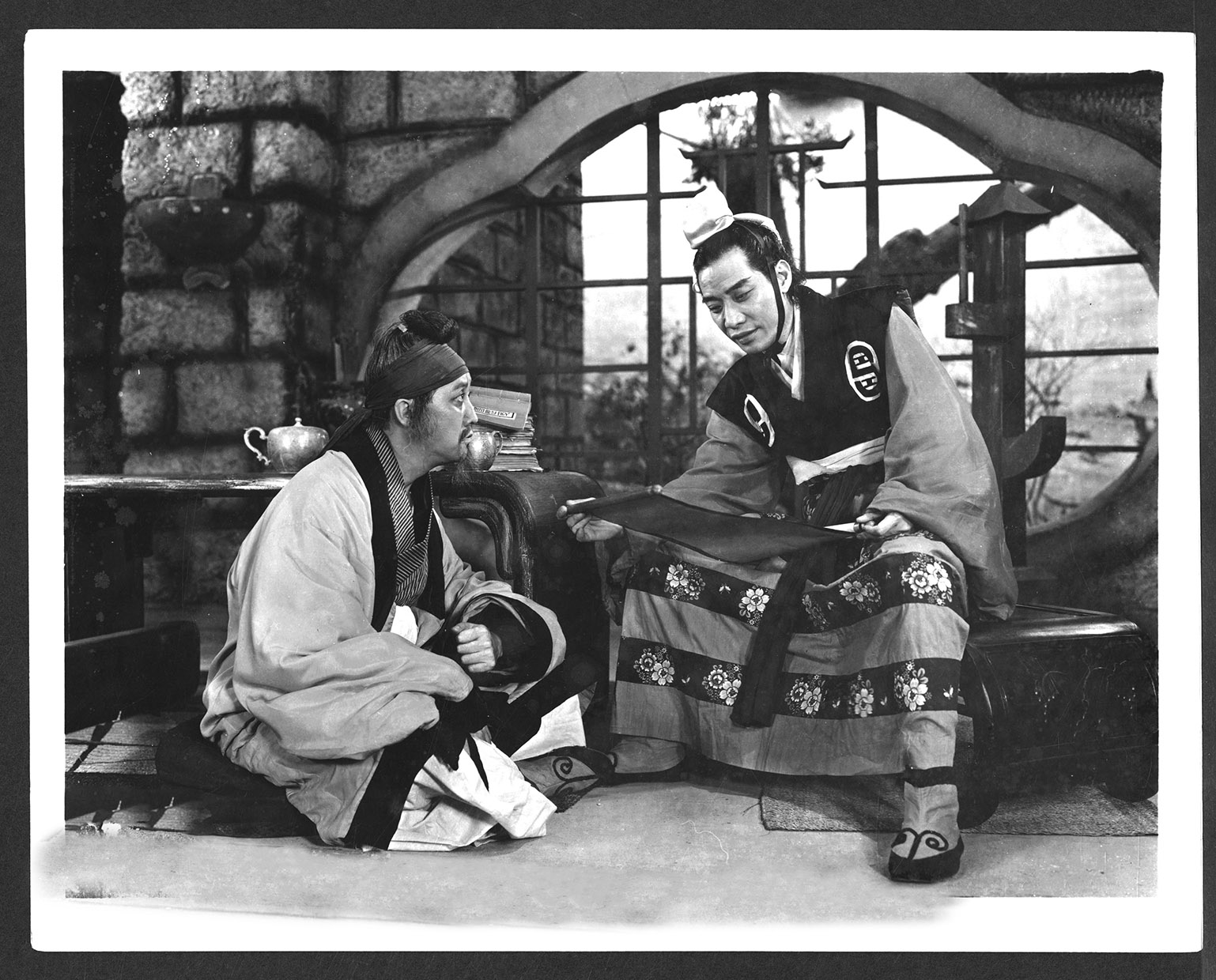
The Prince Who Loves a Slave (1940)
Prince Yuk Siu-sheung of Kin Fuk Kingdom has been imprisoned for over ten years following the defeat of his kingdom by Kwan Ling Kingdom. During this period, he falls in love with a slave girl, Chau Sum. The king of Kin Fuk Kingdom is critically ill and the queen of Kwan Ling Kingdom allows the prince to return to his own country. When the prince bids the queen farewell before he leaves, the queen falls in love with him immediately and wants to take him as her husband. In order to comply with his father's order, the reluctant prince pretends he is losing his mind and marries the queen. Chau Sum thinks that the prince no longer loves her so she becomes a nun. However, when she learns about the truth, she resolves to marry the prince regardless of everything.
Notes:
Added on a 'brown-colour wash' for developing the film stock by US-educated expert on cinematic technology Johnny Chien.
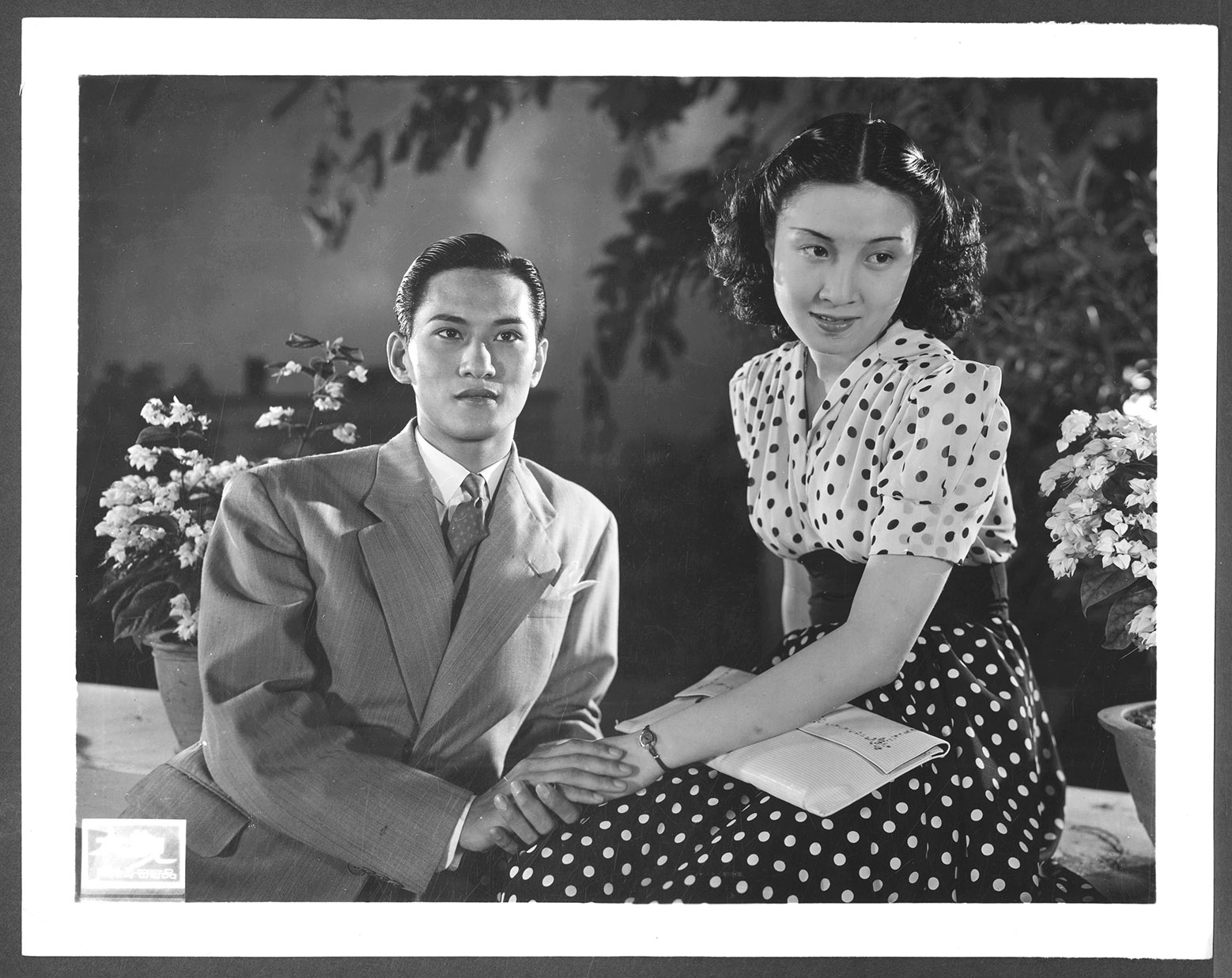
The Dandy (1941)
Rich boy Wong Chiu leaves his village to avoid being draughted. He and his penniles fellow villager Wong Kim-hung are helped by another villager Wong Ming-yuen, to enter a middle school in the city. Chiu and Ming-yuen lead increasingly degenerate lives, while Kim-hung becomes friends with the hard working young man, Fong Lap-sung. Chiu falls in love with classmate Chiu Sai-ling, though Sai-ling has an unusual respect for Kim-hung. As their hometown falls into enemy hands, Kim-hung starts raising funds and organising a volunteer resistance troop to go home and help. Sai-ling signs up to help, but is repeatedly stopped by Chiu. After she scolds him for being self-destructive, Chiu attempts suicide and is taken to hospital. Sai-ling and Kim-hung, along with their fellow volunteers, set off to join hands with other patriotic young people in the war of resistance.
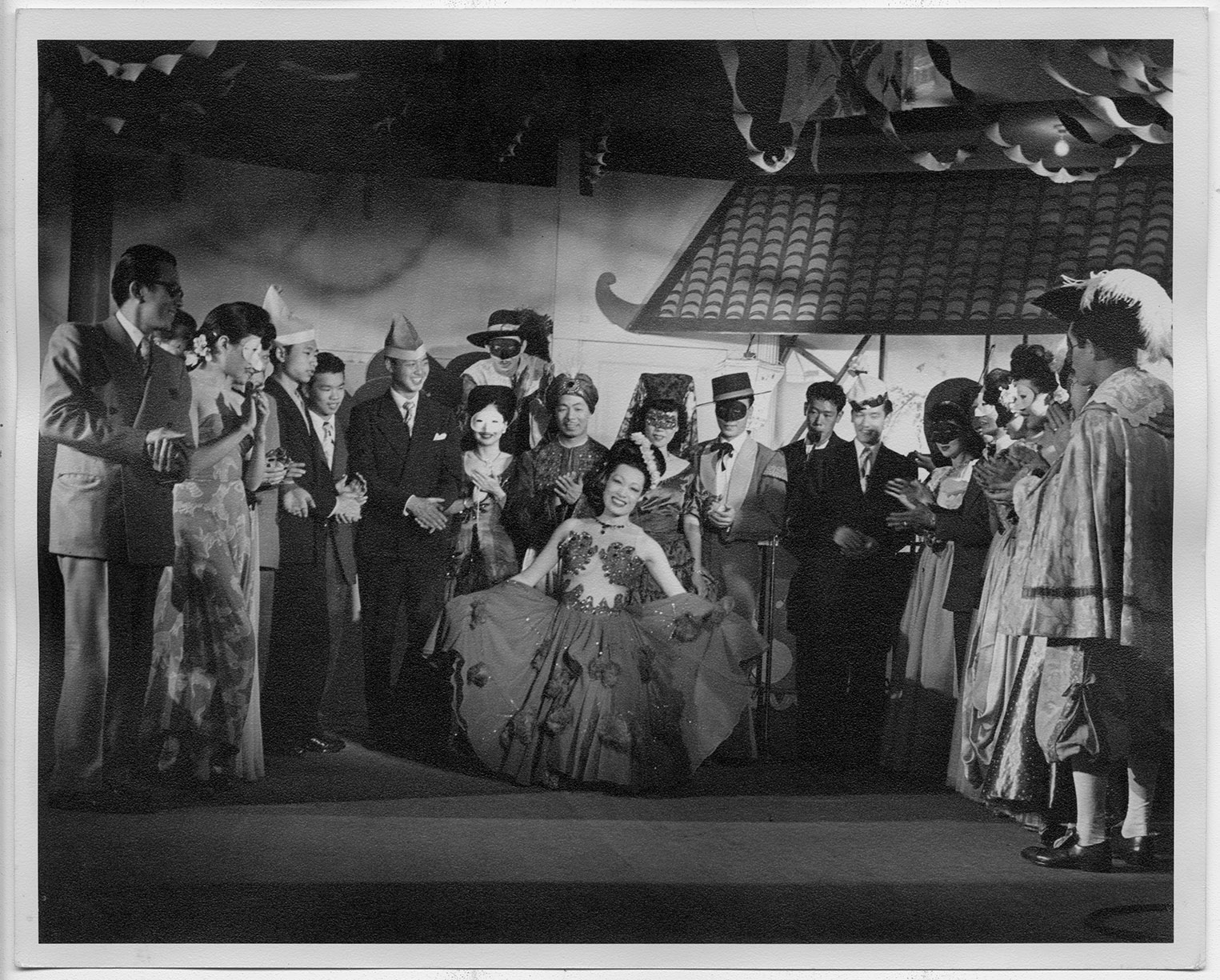
A Fair Lady by the Blue Lagoon (1949)
On the order of an older family friend, a young engineer goes to a small town by the lake in America to build a hospital. He stays in the house of the primary school caretaker, Uncle Kau. There also lives the young and widowed Madam Lam who is a highly regarded teacher at the primary school. However, gossip brings about her downfall as she and the engineer become close. The town folks demand Madam Lam to be sacked. At the same time, the engineer's family friend visits America with his daughter and demands a marriage between his daughter and the engineer, but the latter refuses. When Madam Lam is eventually sacked, she writes a letter to the engineer telling him that she is leaving him and the town. Heart-broken and disappointed, the engineer leaves America for home. Madam Lam soon gives birth to a daughter who is later adopted by a friend, Tang Pui, who runs a bookshop. Out of sympathy, Tang also helps Madam Lam to open a flower shop. The engineer returns to America on another job while still in love with Madam Lam. He meets Uncle Kau by chance and is reunited with Madam Lam and the daughter. The engineer resolves to help Madam Lam build a school but she is now sick with tuberculosis as the years have taken its toll on her. While the engineer is recalled to New York, Madam Lam works feverishly on finishing the school and eventually passed away before the engineer returns.
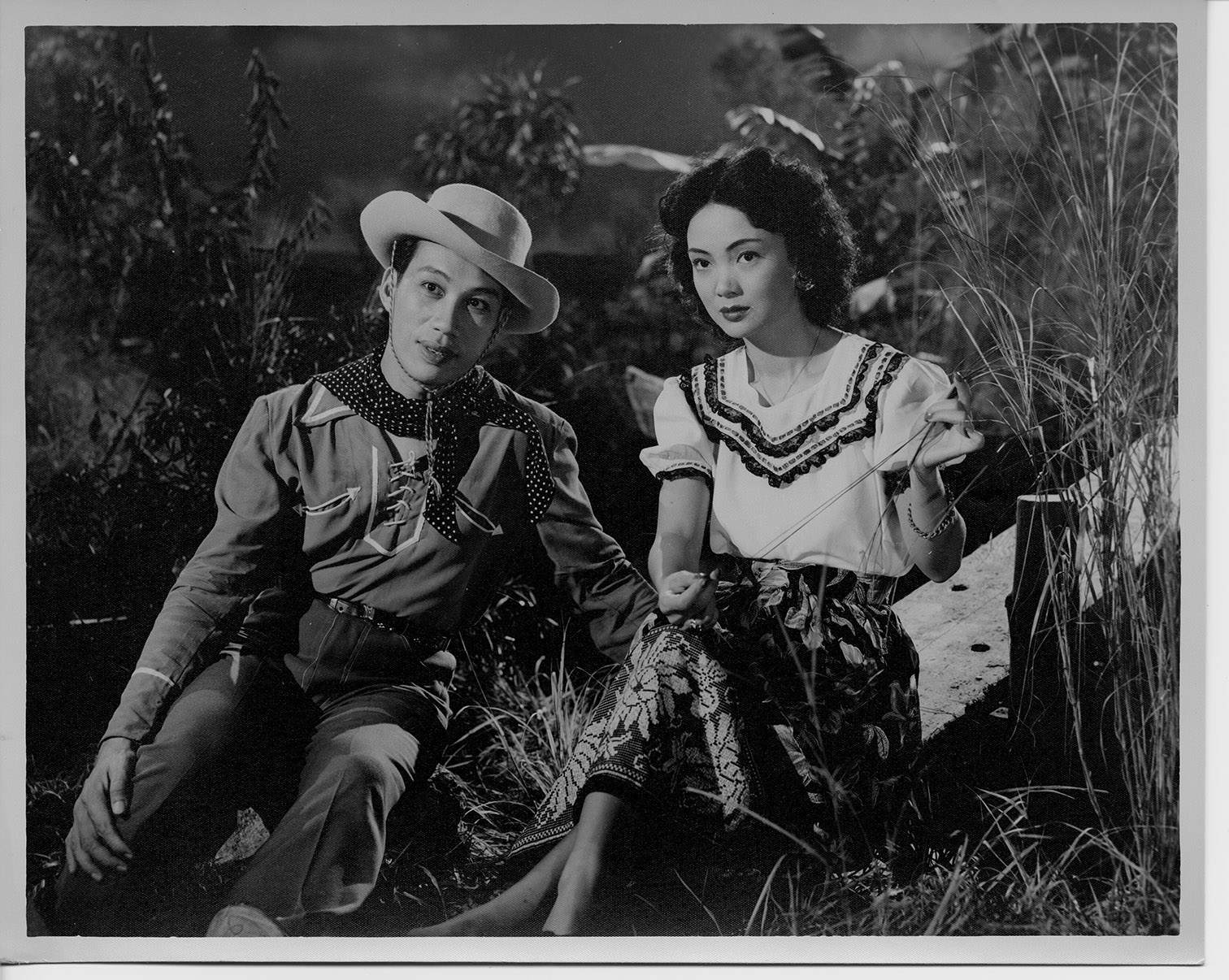
The Battle of Green Dragon Hamlet (1954)
The owner of the Green Dragon Hamlet in America dies from an illness. The foreman Fung Wah schemes to take over the farm, and forces the owner's daughter to marry him. Two gallant young men intervene to save the daughter and engage themselves a fierce duel with Fung. The hero gets the girl.

